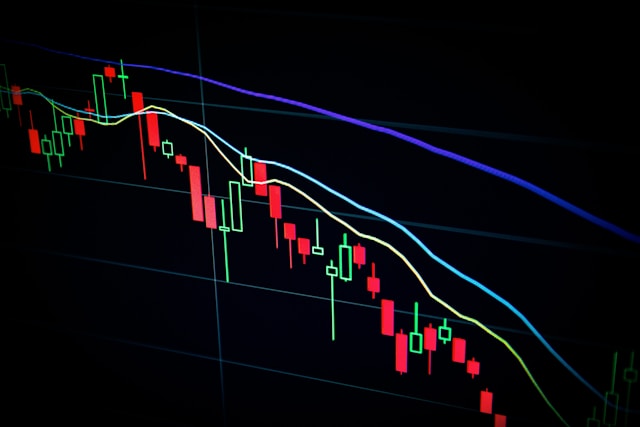- Change theme
Confused by CFD Fees? Your Complete Guide to Trading Costs

Are you new to CFD trading and feeling puzzled by the fees?
11:48 14 May 2025
Are you new to CFD trading and feeling puzzled by the fees? It's easy to get caught off guard when unexpected charges reduce profits. From spreads to overnight financing, understanding CFD fees can be a game-changer for your trading experience. But which fees matter most, and how can you avoid overpaying? This guide will help you understand the costs, ensuring you trade confidently and avoid unnecessary surprises.
Spread: The Basic Cost of Every Trade
When trading with a reliable CFD Broker, your first cost is the spread. The spread is the difference between an asset's buying price (ask) and the selling price (bid). For example, if a stock has a buying price of £100 and a selling price of £99.50, the 0.50 difference is the spread. This difference is how brokers make money without directly charging you.
Spreads can change depending on what you trade and market conditions. Popular assets, like major currency pairs, usually have lower spreads. But exotic ones? They often come with higher spreads. Always check the spread before placing a trade. It's important.
Commission: Direct Fees for Specific Trades
Some brokers charge a commission on trades. It's usually a small percentage of the trade value. This is common with stock CFDs. For instance, if you trade £1,000 with a 0.1% commission, you pay £1 in fees.
Not every broker does this, though. Some only use spreads to make money. So, before you pick a broker, compare their fee structures. Look for one that suits your trading style. A good CFD Broker is always clear about their commission fees.
Overnight Financing: The Cost of Holding Positions
Planning to keep a trade open overnight? You might be charged an overnight financing fee, a swap fee. It's an interest charge on the borrowed money used in your trade.
For example, you open a £1,000 trade but only use £100 of your money. The other £900 is leverage. That's the borrowed amount. And you pay interest on that. These fees add up, especially if you hold positions for a long time. So, make sure your broker is open about their swap rates. It saves you from surprise charges.
Inactivity Fees: Paying for Not Trading
Some brokers charge an inactivity fee if your account isn't used for a while. It could be three months, six months, or some other period. The fee might be small, just a few pounds. Or it could be higher, depending on the broker's rules. They say it helps cover maintenance costs.
Want to avoid this fee? Just keep your account active. Even a small trade can help. Or better yet, pick a broker that doesn't charge for inactivity. Always check their terms to know the rules. If you're a casual trader, look for brokers that don't punish you for taking a break.
Currency Conversion Fees: Trading Across Borders
You might facecurrency conversion fees if your account is in GBP but trades assets priced in USD. It happens when your money is switched from one currency to another. Even a slight variation in exchange rates can impact your profits over time.
To save on these fees, choose a broker with good conversion rates. Some even let you hold accounts in multiple currencies. That can be useful. Understanding these fees is important, especially if you trade international assets. It can save you from surprise costs.
Conclusion
CFD fees can seem confusing. But they don't have to be. Knowing your costs is the first step to smart trading. Always pick a transparent trading broker that clearly explains its fees. Make sure you know everything from spreads and commissions to overnight charges.
Take a few minutes to review your broker's fee structure. It makes a big difference. With the right knowledge, you can plan better and trade smarter. And you'll have a more profitable, stress-free experience.
